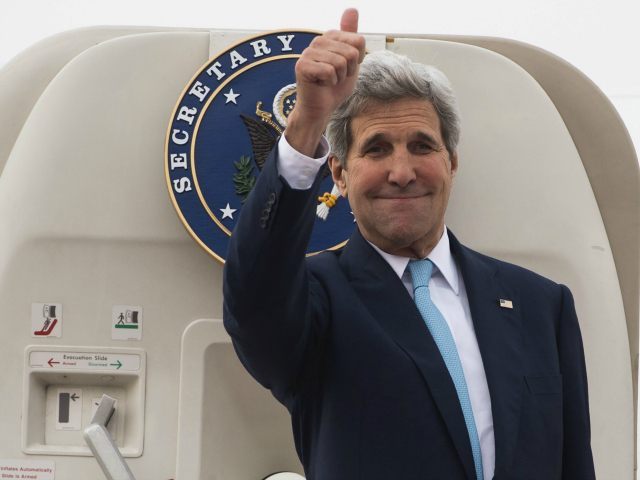In a speech in South Korea, Secretary of State John Kerry said that the Internet needs heavier regulations to “be able to flourish and work properly.”
Touting the Obama administration’s new policy on the Internet, Kerry insisted that without strict government regulation, the Internet could not reach its potential, and he couched his comments as a way to respond to threats of cyberattacks.
Kerry claimed that his “universal concepts” and “five principles” were necessary to protect the world’s Internet:
First, no country should conduct or knowingly support online activity that intentionally damages or impedes the use of another country’s critical infrastructure. Second, no country should seek either to prevent emergency teams from responding to a cybersecurity incident, or allow its own teams to cause harm. Third, no country should conduct or support cyber-enabled theft of intellectual property, trade secrets, or other confidential business information for commercial gain. Fourth, every country should mitigate malicious cyber activity emanating from its soil, and they should do so in a transparent, accountable and cooperative way. And fifth, every country should do what it can to help states that are victimized by a cyberattack.
But even with these “five principles,” Kerry said that there is still more work to do to “develop a truly reliable framework—based on international law—that will effectively deter violations and minimize the danger of conflict.”
Along with the cooperation Kerry felt was needed to stop cyberattacks on any nation’s infrastructure, he also claimed that the world had to come together to regulate commerce on the Internet to stop “organized crime in cyberspace.”
“As we know, malicious governments are only part of the cybersecurity problem,” Kerry concluded.
Organized crime is active in cyberspace. So are individual con artists, unscrupulous hackers, and persons engaged in fraud. Unfortunately, the relative anonymity of the internet makes it an ideal vehicle for criminal activity – but not an excuse for working through the principles I described to finding rules of the road and working so that the internet works for everybody else. The resulting financial cost of those bad actors, the cost of cybercrime, is already enormous, but so is the loss of trust in the internet that every successful fraud or theft engenders.
Follow Warner Todd Huston on Twitter @warnerthuston, or email the author at igcolonel@hotmail.com.

COMMENTS
Please let us know if you're having issues with commenting.